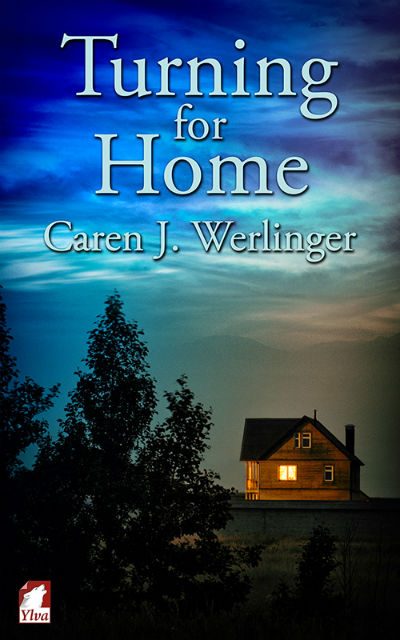It is of course obvious to say that our past always shapes our present, but Caren Werlinger’s Turning for Home takes that truism and spins it out into a hidden gem of a novel about love, friendship, loyalty, and how we often hurt the people we love the most.
Jules Calhoon spent her childhood in an idyllic Ohio small town that wasn’t so idyllic for her. Abandoned by her mother as a toddler, Jules was raised by her caring but distant grandmother Mae and her beloved, affectionate grandfather Pappy in a town where living in the closet was a necessary act of survival. By the time Turning for Home begins, it’s many years later, and Jules is living a more humane life working as a school psychologist, sharing a home with her partner Kelli. She’s also surrounded by a supportive network of lesbian friends.
But the wounds of Jules’s childhood have hardly healed: She’s had two past relationships that ended because she kept secrets from her partners and eventually drifted away into breakup. Jules doesn’t know why this pattern happens and resolutely doesn’t want to know. One mystery that the novel carefully unpacks is the question of where this pattern of behavior comes from. As that happens, the reader soon sees how Jules’s stubbornly unexamined life with Kelli is one of contentment but also vulnerability.
And indeed, everything about Jules’s life starts unraveling when she returns home to attend Pappy’s funeral and a lesbian teenager in a local diner slips her a note begging for her help to escape the homophobic town. As Jules debates whether or not to risk the entanglement of trying to help Ronnie leave, the memories of her own childhood emerge and threaten to break apart Jules’s carefully compartmentalized existence.
The heart of darkness in Jules’s backstory is a mysterious and tragic event involving her best childhood friend Hobie, which Werlinger slowly reveals through a series of lovingly written flashbacks about Hobie and Jules’s childhoods. At the same time, she keeps the action moving in the present through an aptly managed cat’s cradle of intertwining conflicts between Jules and her friends involving miscommunications, guilt, secrecy, and infidelity. The novel travels seamlessly between the past and present to tell interconnected stories of friendship, heartbreak, and resilience in a way that is intriguing and never feels self-indulgent.
Turning for Home’s strengths lie in building a multilayered world of believable lesbian characters. Within the fabric of these mundane characters’ ordinary lives, Werlinger finds compelling, suspenseful stories to tell. It was a world I was sad to leave by the novel’s end.
